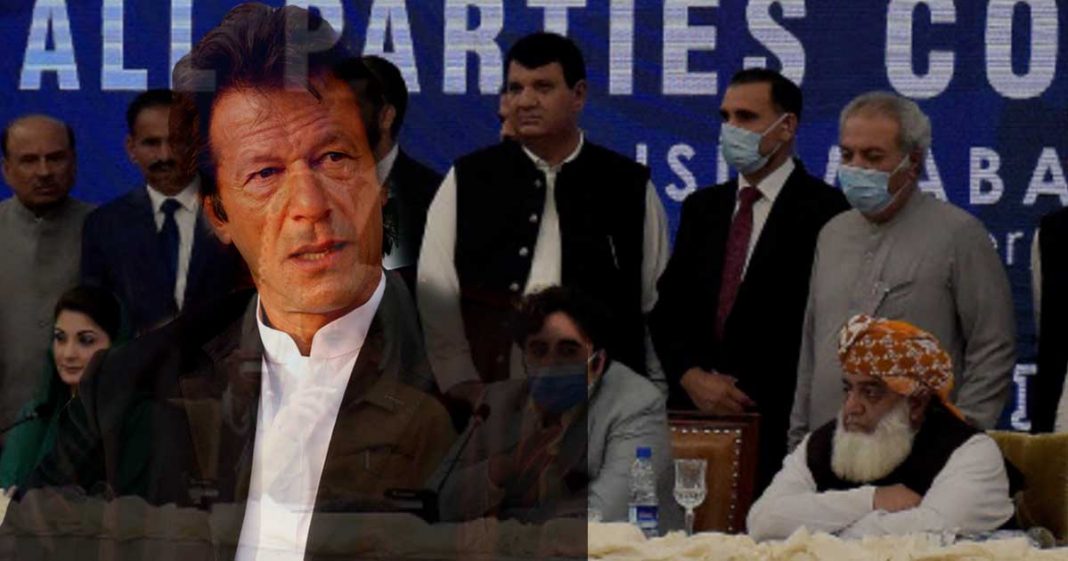Prime Minister Imran Khan announced on Tuesday that his government was planning to introduce much-awaited electoral reforms in the country. He was addressing the nation regarding electoral reforms when he said that all parties including the PTI, Pakistan Muslim League – Nawaz (PML-N), and Pakistan Peoples Party (PPP) had leveled allegations of the 2013 elections being rigged. Therefore, there is a need to reform our electoral process, he added.
#Pakistan P.M. Imran Khan says PTI government will introduce electoral reforms to ensure free and fair polls, including an electronic voting system and an end to secret balloting in #Senate electionshttps://t.co/YpdVFVXL8S
— Pakistan Standard (@PakStandard) November 17, 2020
According to the PM, a committee, comprising Azam Swati, Pervez Khattak, Babar Awan, and Shafqat Mahmood, was working on electoral reforms. “It will get two things approved by the parliament, one of which is electronic voting,” PM Imran said.
A very pertinent move by Prime Minister @ImranKhanPTI on electoral reforms, especially in Senate to ensure elimination of horse trading
Hopefully those who keep crying about a weak system will play their due role to help reform this process
Enough with corruption at every level!— Dr. Yasmin Rashid (@Dr_YasminRashid) November 17, 2020
The PM said that three types of reforms are on the cards: First, the government intends to introduce electronic voting in the country to make the process of general elections free and fair. Two, the government working to introduce a system for overseas Pakistanis to enable them to participate fully in the election process and cast their votes. As for the third reform, the premier said the government was also working to make the Senate elections more transparent as to redress complaints of “a lot of money being spent on them”. “Because votes can be bought in the secret balloting process… as everyone has acknowledged, there would be a show of hands in front of everyone to put a stop to the corrupt practice,” PM Imran said.
Read more: Electoral Reforms: The only way forward for sustainable ‘Peace & Governance’
The premier believes that the first two reforms can be brought by its government with a simple majority in the Parliament. However, to ensure a show of hands in front of everyone the government needs two-third majority for introducing a constitutional amendment.
Should Pakistan go for electronic voting?
PM’s decision to introduce an electronic voting system is in line with what the modern democracies are following in the age of the internet.
International Institute for Democracy and Electoral Assistance recently reported that “countries as big as Brazil and India, with huge populations and complex political systems, shifted to electronic ballot technology many years ago”.
“Brazil has about 150 million voters,” said Giuseppe Janino, reported Poynter, the secretary of technology and information in the Brazilian Superior Electoral Court. “In the 2018 presidential election, we announced the winner only two hours and 16 minutes after the polls were closed. By that time, we had already counted 96.7% of all votes, cast all over the country.”
Similarly, Brookings Institution India Center reported that the introduction of electronic voting machines reduced electoral fraud, made the electoral process more competitive in regions where the winning margins were short, and led to a decline in crimes related to the election process.
There is a question about the electronic voting system. Can the elections be hacked if it is done through machines? Giuseppe Janino says “it cannot be hacked“. Because our machine isn’t connected to the internet. It doesn’t have Wi-Fi, Bluetooth, or any other technology like that. To hack it, a person would need to actually have all the machines in hand,” Janino said.
Read more: PTI to win GB Elections 2020: How is PML-N likely to react?
Political experts in Pakistan also argue that the record of the voter should also be saved physically. “It should be saved as to who voted whom in order to ensure wider electoral transparency,” a Lahore-based analyst told GVS.
Overseas Pakistanis’ right to vote?
Although Prime Minister Imran Khan wants to let the overseas Pakistan take part in the country’s political process, yet the opposition is expected to oppose it. PTI demanded the right to vote for overseas Pakistan in 2013 and 2018 but the main parties never allowed it because of two reasons; one, overseas Pakistani have a worldview and question the nature of dynastic politics in Pakistan. Two, the majority of them are supports of PTI.
Political analysts believe that the opposition parties are likely to use different tactics to manipulate mass psychology. The real problem, they maintain, is the overseas Pakistanis’ support for the incumbent government. Overseas Pakistanis live in the US, EU, and other GCC countries. They travel and developed an informed worldview and that is why they view the political system in Pakistan quite differently.
Parliamentary Leader of the PPP in the Senate, Senator Sherry Rehman said, “The PTI led government should first accept responsibility for rigging elections in Gilgit Baltistan and then talk about reforms. This sudden interest in electoral reforms seems extremely dubious when all these years they have done nothing about it”.
Similarly, Dr. Musadik Malik of PML-N also said that the reforms suggested by the PM are not what Pakistan needs. “Those who hijack the electoral process should be controlled and stopped from engineering the political process,” told Arif Nizami on the 92 channel.
A segment of media is conditionally supporting the premier’s suggestion. Mazhar Abbas, a prominent political commentator, told Dr. Moeed Pirzada on 92 channel that “I support this set-up if the same method is applied for the election of the speaker and deputy speaker of the assembly”. It means the premier’s suggestion is likely to be endorsed by some media persons but not without conditions.














